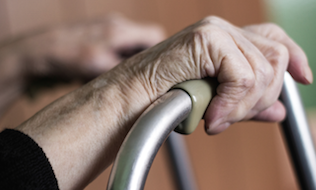

Some 323,000 Canadians have inadequate retirement income once the costs of long-term health care are factored in, a figure that could grow to about 815,500 by 2038, according to a new study.
The study, which looked at the impact of out-of-pocket health-care expenses on Canadian retirement security, was conducted in three major phases by the Healthcare of Ontario Pension Plan and the University of Toronto’s Institute for Health Policy, Management and Evaluation.
The first was a review of the most relevant academic literature on retirement security and health spending in Canada; the second was an analysis of household consumer spending data to assess health spending trends; and the third was a recreation of LifePaths, a statistical model created by Statistics Canada to assess Canadians’ retirement readiness, with health spending factored in.
Read: CPP changes do little to ensure appropriate income for future retirees
The study also found:
- Out-of-pocket health-care costs tend to rise with age, especially among high consumers of health-care services.
- To date, studies and analyses of Canadians’ retirement readiness have neglected the increasingly important area of out-of-pocket health-care costs, including home-based and long-term care.
- Including the costs of home-based and long-term care in the analysis worsens the picture of Canadians’ retirement readiness and future retirement security among certain groups, particularly women and people aged 85 and older. The percentage of women projected to have inadequate income nearly doubles once health-related costs are factored in (increasing to 17 per cent from 11 per cent for 70-year-olds and to 44 per cent from 25 per cent for 85-year-olds).
These findings play out against the backdrop of another issue — the fact that caregiving is a serious financial burden for an increasing number of adult Ontarians. Living longer means more Ontarians will live to 85, at which point the probability of becoming severely disabled increases significantly. Twenty-five per cent of women and 15 per cent of men aged 85 are severely disabled, which means significantly higher health-care spending and an increased need for caregiving from family members and home-care professionals.
Read: Government launches consultation on parental, caregiving benefits
According to a recent survey, Ontarians are facing barriers to saving for retirement beyond their wages and workplace benefits. Twenty-two per cent of Ontarians are caregivers for a family member, most often their parents, and one-third of caregivers in the province are unable to afford the professional home-care assistance they need. This means roughly 750,000 Ontarians need home care for caregiving purposes (not personal use) but can’t afford it.
The findings have important implications for policy-makers and stakeholders in both the retirement and health-care systems. Building on the recent Canada Pension Plan enhancement, stakeholders and policy-makers should examine additional ways of strengthening retirement security for all Canadians, including focusing on women and devising more efficient strategies for financing out-of-pocket costs associated with home-based and long-term care.
Read: ‘Exciting time for retirement’ as CPP deal signals premium boost to 5.95%
As part of its advocacy efforts, HOOPP periodically conducts research on topics relevant to retirement security, plan members and its community of stakeholders. The purpose of this research is to inform public and stakeholder debate, as well as to contribute to evidence-based public policy and regulation on issues relevant to HOOPP members.
Kristina Hidas is senior manager of strategic research at the Healthcare of Ontario Pension Plan.
